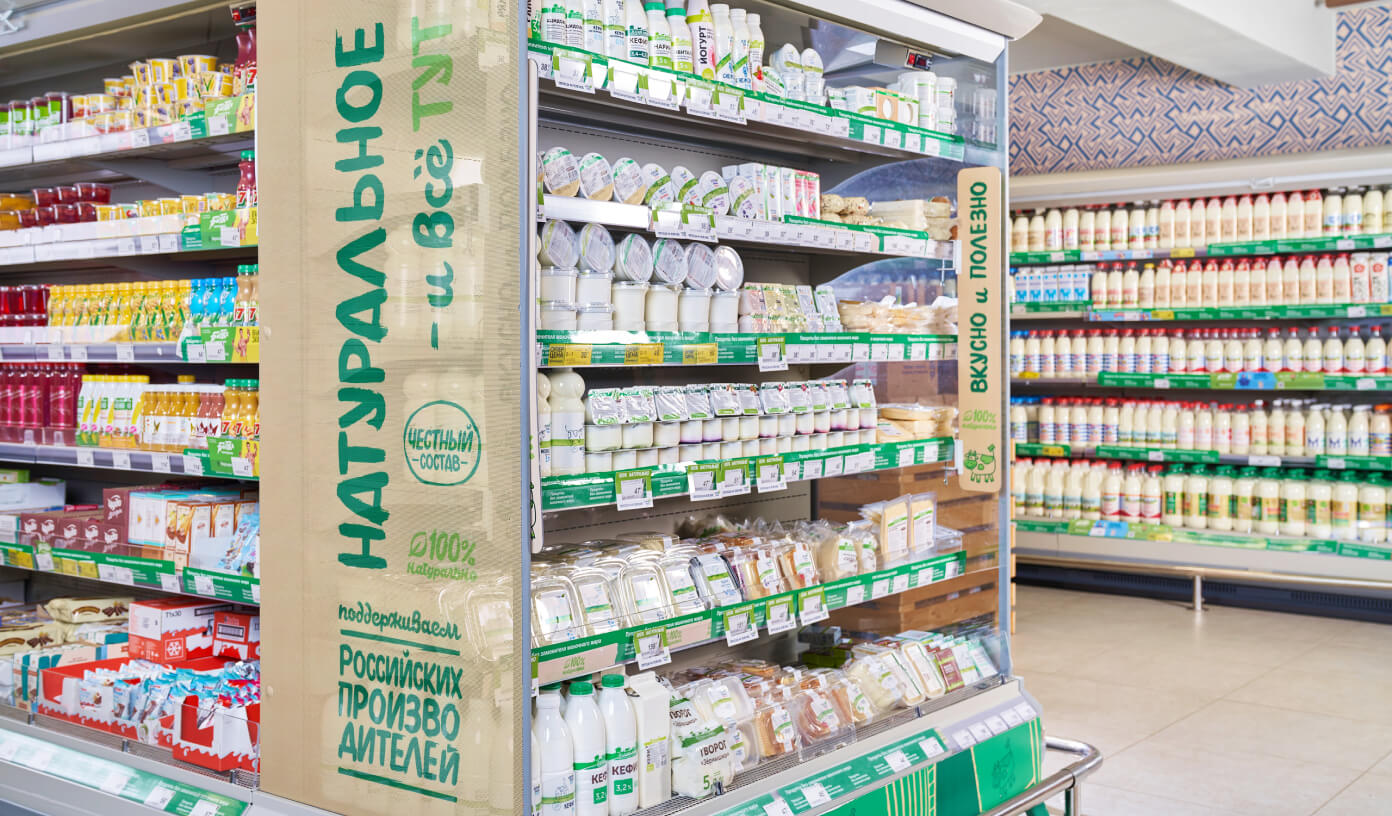 Photo by: X5 Group
Photo by: X5 Group
“Green products and services must meet not only quality and safety requirements, but also environmental requirements to reduce the harmful impact on the environment and people (when compared to similar products and services).
In the Russian market, only the concept of “organic products” is legally regulated. But according to Rosselkhozbank, the market for such products in Russia is at a very early stage of development.
The share of organic products on the domestic food market is about 0.1%, with sales of 10–12 billion roubles a year.
All “eco”, “bio” and other “green” labels are left to the manufacturers’ discretion. But there are clear advantages to business in such labelling: a “green” brand increases the value of the product for the consumer, and therefore increases demand for the product and reduces the “price factor” in competition.
But due to weak regulation of the market of “green” products, buyers may encounter greenwashing (from greenwashing). This is the positioning of companies, brands, products and services that confuses consumers and leads to a false perception that products are environmentally friendly.
Greenwashing often manifests itself through marketing tools and activities. It gives audiences false signals about environmental practices, climate initiatives, and the environmental benefits of the brand with the sole purpose of increasing sales profits.
To avoid the negative impact of greenwashing on the consumer, the government is seeking to introduce a clear regulatory system. For example, Roskachevo, fertilizer producer Phosagro and the League of Green Brands on behalf of the Russian Ministry of Agriculture will develop a National Green Strategy with criteria entitling manufacturers to label their products as “green”. The strategy will assess not only the composition of products and their production technology, but also a number of parameters that accompany the product’s life cycle — from its development to recycling or disposal.
Cover photo: X5 Group








Comments